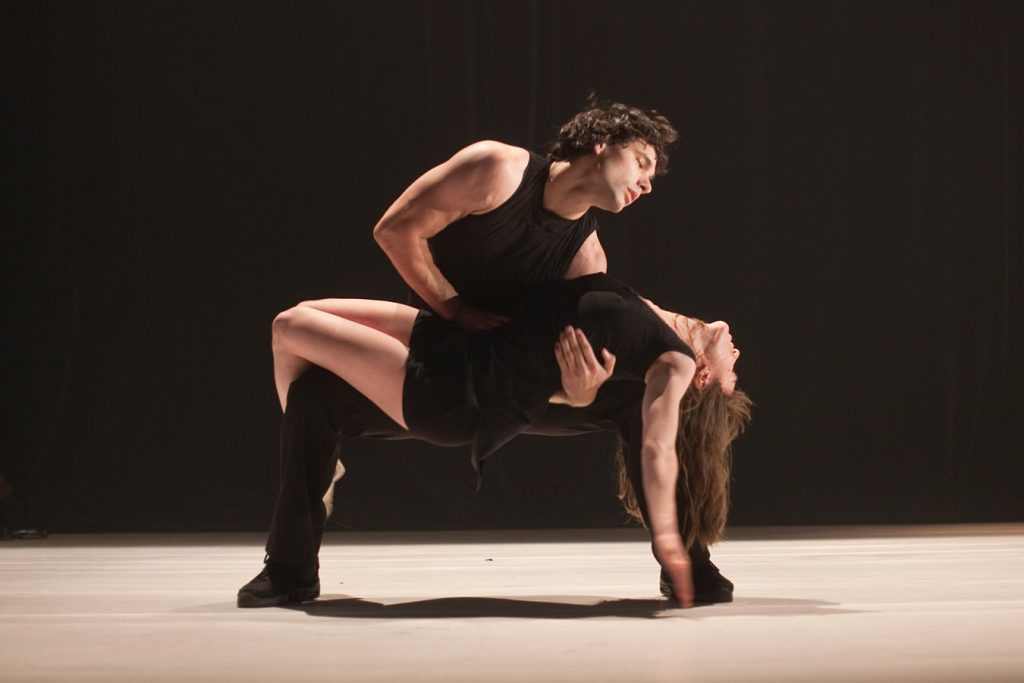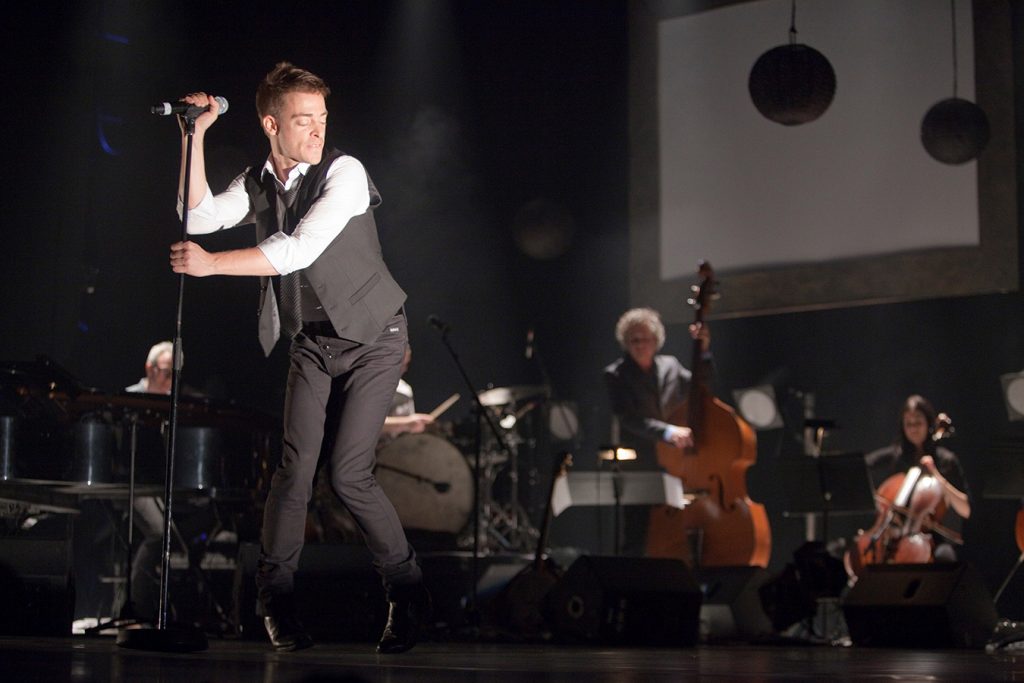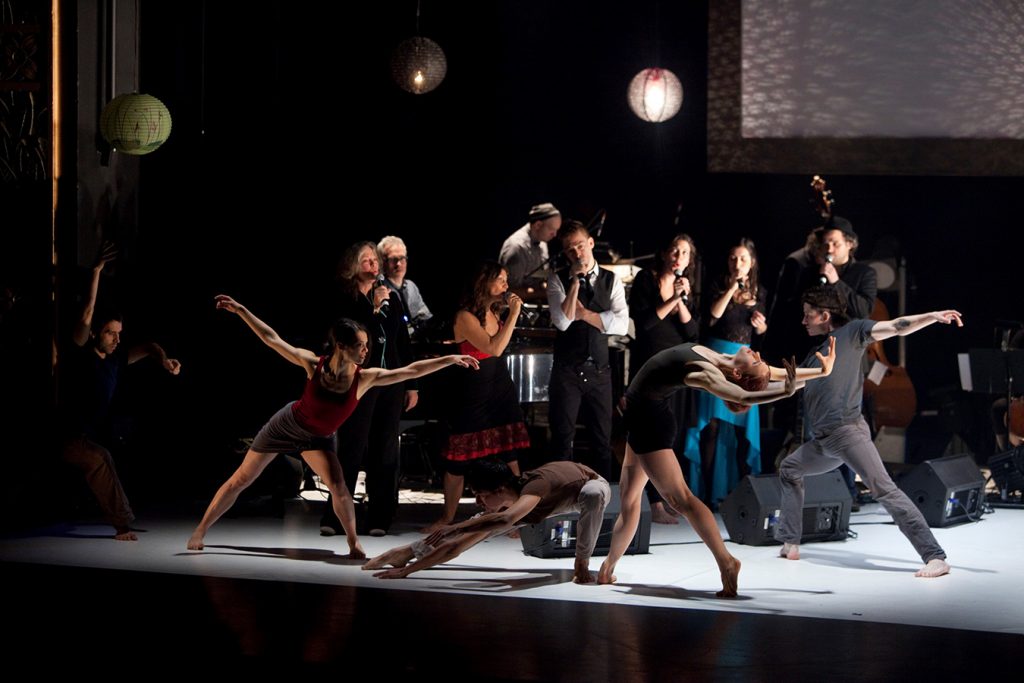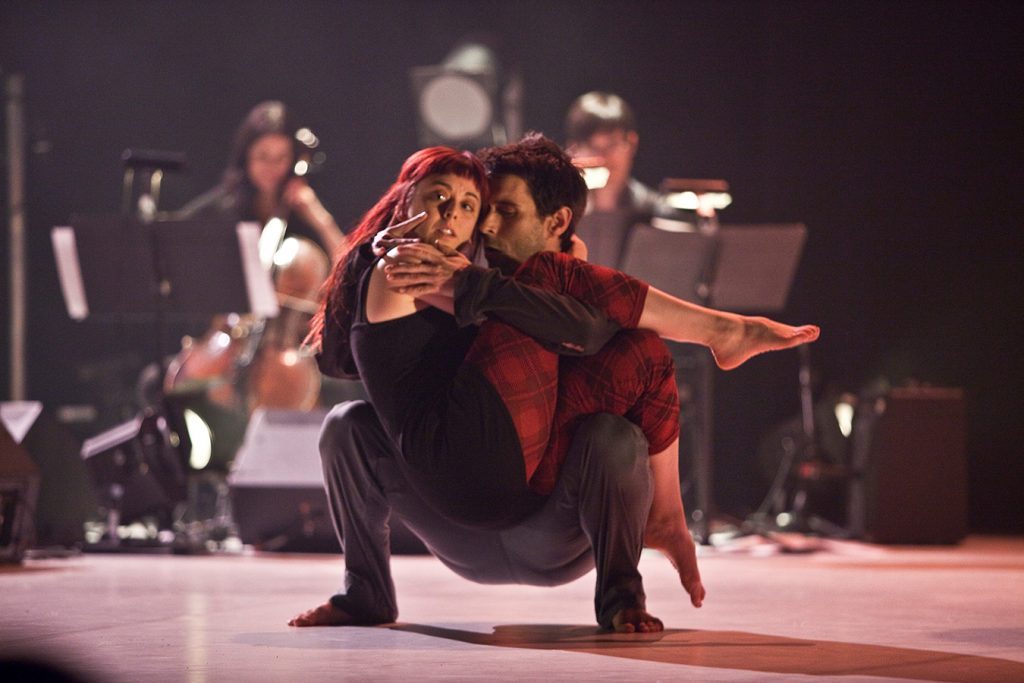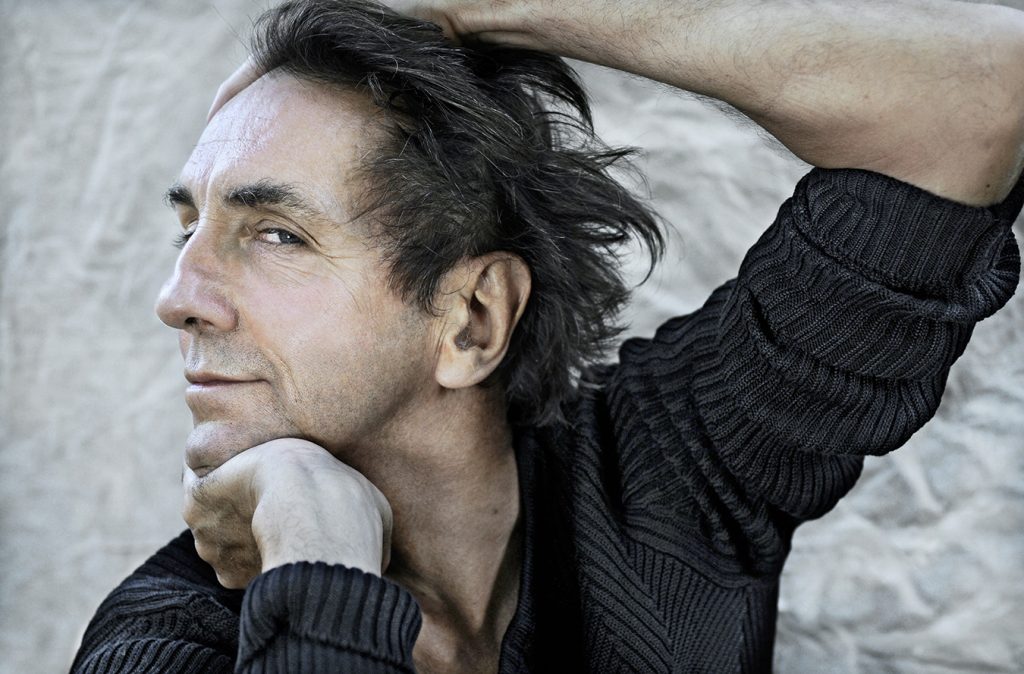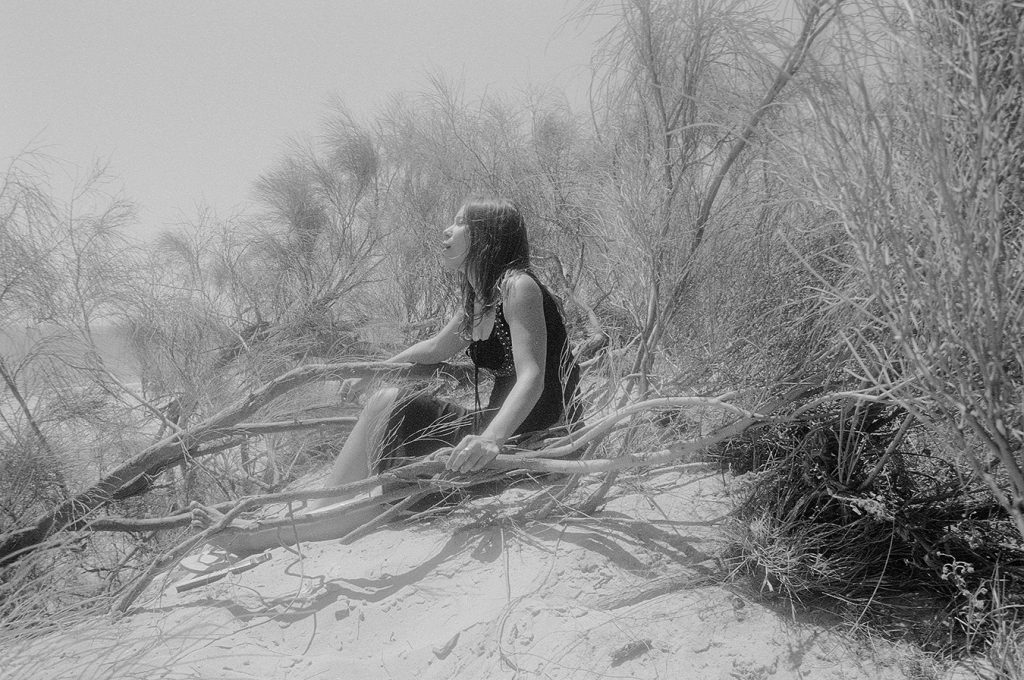And who by fire, who by water,
Who in the sunshine, who in the night time,
Who by high ordeal, who by common trial,
Who in your merry merry month of may,
Who by very slow decay,
And who shall I say is calling?
—Leonard Cohen
Lhasa de Sela sang these lyrics in a tribute to Leonard Cohen at the Montreal International Jazz Festival in 2008. The chanteuse had an acclaimed career as a singer-songwriter in her own right too, producing three multi-lingual albums and winning numerous awards for her eclectic folk music. Her career, however, was cut short by breast cancer on New Years Day, 2010.
De Sela was born in the United States, and spent parts of her nomadic life in Mexico and France, eventually calling Montreal home before her untimely passing. Fellow Montrealer and noted choreographer Pierre-Paul Savoie created Danse Lhasa Danse in honour of the late singer. The performance makes its Vancouver premiere on Saturday, January 18 at the Chan Centre for the Performing Arts as part of this year’s PuSh International Performing Arts Festival.
“This is something special,” Savoie says. “I directed Danse Lhasa Danse, but only choreographed part of it. My idea was to bring the Montreal community together to create this tribute to her.” The multi-disciplinary performance encompasses numerous dance styles—including Flamenco, neoclassical, and contemporary—each a personal tribute from choreographers Savoie hand-picked for the project. “I did the same with the singers too,” he continues. “We chose four singers with different approaches, different types of voice, and I asked them ‘which song touches you?’ I think that’s the way to have the best from everybody.”
Savoie spent six months researching and structuring the show, incorporating personal touches from Lhasa’s own works and performances. “I used images, recordings of Lhasa,” he explains. “It’s like a triangle between three disciplines: the musicians, who play live, the singers, and the dancers, creating a symbiotic art form with everybody working together under the music of Lhasa. It’s beautiful.”
While Savoie never knew de Sela in person, he connected with the artist through her music. “The first album was nearly all in Spanish, but I was interested because I recognized the quality of it. In fact, after that, when I became more familiar with her two other albums, I respected her evolution, her style, and her personality. She was able to talk about death with such comforting words. The way she presents it gives us perspective on life.”
Danse Lhasa Danse was originally created for a one-night performance during the Coup de Coeur Francophone festival in Montreal, and has now been touring Canada for two years. Savoie hopes to take it to the international stage next. “[The show] is in English, it’s in Spanish, it’s in French, but dance is the universal language. You feel and you see what’s happening. I didn’t think of that in the beginning, but from Montreal to Toronto to Halifax, there’s no problem of language because dance is the link.
“Lhasa was kind of an old soul, and I found dance was a great medium to translate her soul. Even her father told me that [the performance] looked like her. She’s so present throughout it in images, and there are a few moments in the show where we hear her voice. She’s so there you would not believe it. But you don’t even need to know her to appreciate her, because the show is also a tribute to life and death. It has become a universal story—living and dying, everyone will experience that and I think that’s why the show is so powerful.”
Danse Lhasa Danse will be presented on January 18 at 8:00 p.m. at the Chan Centre for the Performing Arts as part of the PuSh International Performing Arts Festival, with a pre-performance talk by Pierre-Paul Savoie at 7:15 p.m.
Performance photos: Jean-François Leblanc.
Lhasa photo: Ryan Morey.

